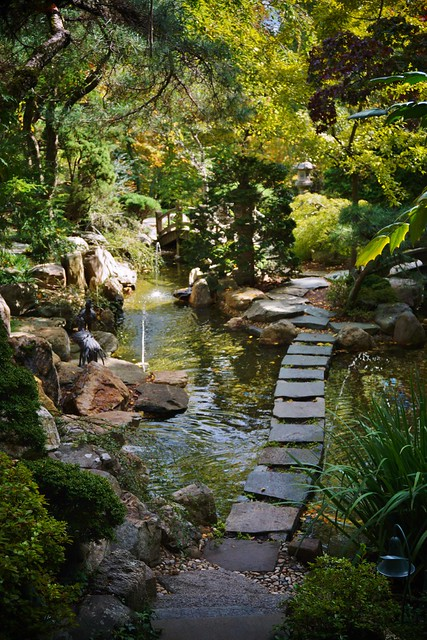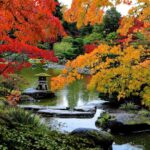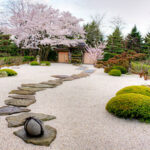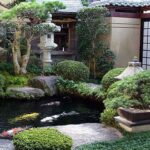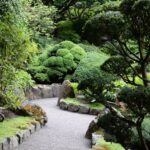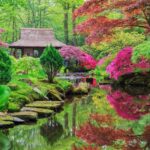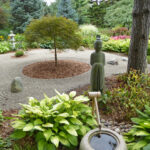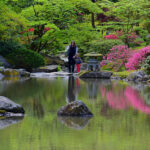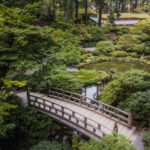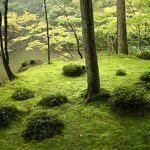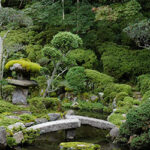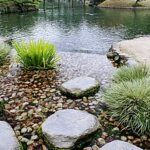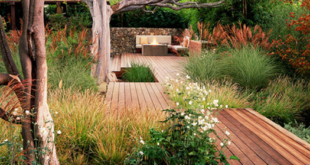Japanese gardens are a serene and harmonious oasis that provide a place of peace and tranquility for those who enter. These gardens are carefully designed to reflect the beauty of nature and create a sense of balance and harmony.
The art of Japanese garden design, also known as Niwaki, has been refined over centuries and encompasses several key principles. The first principle is simplicity, which is reflected in the overall layout of the garden. Japanese gardens are typically minimalist in design, with clean lines and a sense of order that creates a sense of calm and tranquility.
Another key principle of Japanese garden design is the use of natural elements. Water, rocks, plants, and wooden structures are all carefully chosen and placed to create a harmonious composition. Water is often included in Japanese gardens as a symbol of purity and renewal, while rocks are used to represent mountains and create a sense of stability and strength.
Plants are also an important element of Japanese garden design, with careful consideration given to the types of plants used and how they are arranged. An important aspect of Japanese garden design is the use of evergreen plants, which provide year-round beauty and help to create a sense of continuity in the garden.
In addition to natural elements, Japanese gardens often include wooden structures such as bridges, lanterns, and fences. These structures are designed to complement the natural beauty of the garden and create a sense of balance between man-made and natural elements.
One of the most famous styles of Japanese garden design is the Zen garden, which is characterized by its simplicity and meditative quality. Zen gardens typically consist of carefully raked gravel or sand, with few plants or other elements. These gardens are designed to create a sense of calm and focus, and are often used as a place for meditation and contemplation.
The art of Japanese garden design is a timeless tradition that continues to inspire and captivate people around the world. Whether you are looking to create a peaceful oasis in your own backyard or simply appreciate the beauty of these gardens, Japanese garden design offers a unique and timeless aesthetic that is sure to enchant and inspire.
